HSBC 2005 Annual Report Download - page 23
Download and view the complete annual report
Please find page 23 of the 2005 HSBC annual report below. You can navigate through the pages in the report by either clicking on the pages listed below, or by using the keyword search tool below to find specific information within the annual report.-
 1
1 -
 2
2 -
 3
3 -
 4
4 -
 5
5 -
 6
6 -
 7
7 -
 8
8 -
 9
9 -
 10
10 -
 11
11 -
 12
12 -
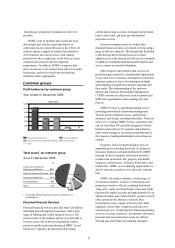 13
13 -
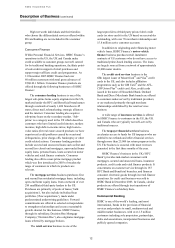 14
14 -
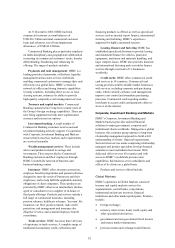 15
15 -
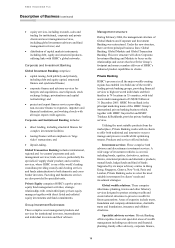 16
16 -
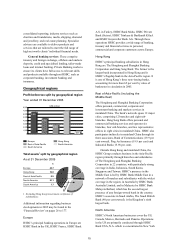 17
17 -
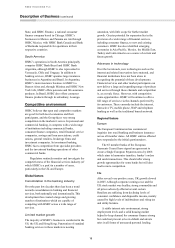 18
18 -
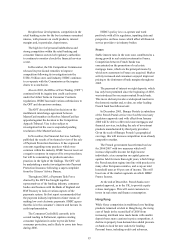 19
19 -
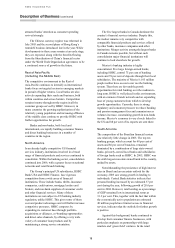 20
20 -
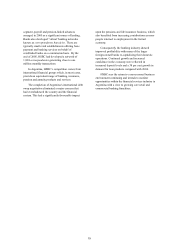 21
21 -
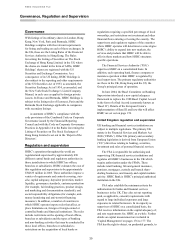 22
22 -
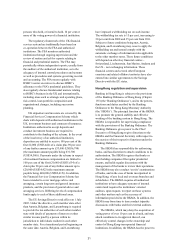 23
23 -
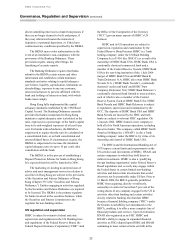 24
24 -
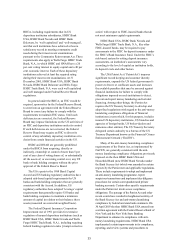 25
25 -
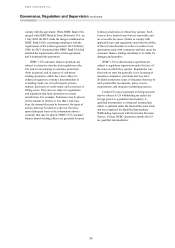 26
26 -
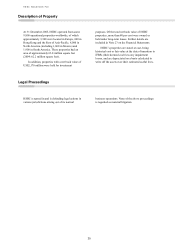 27
27 -
 28
28 -
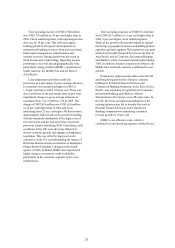 29
29 -
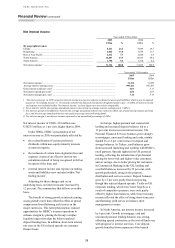 30
30 -
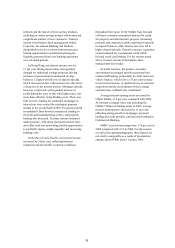 31
31 -
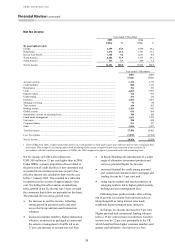 32
32 -
 33
33 -
 34
34 -
 35
35 -
 36
36 -
 37
37 -
 38
38 -
 39
39 -
 40
40 -
 41
41 -
 42
42 -
 43
43 -
 44
44 -
 45
45 -
 46
46 -
 47
47 -
 48
48 -
 49
49 -
 50
50 -
 51
51 -
 52
52 -
 53
53 -
 54
54 -
 55
55 -
 56
56 -
 57
57 -
 58
58 -
 59
59 -
 60
60 -
 61
61 -
 62
62 -
 63
63 -
 64
64 -
 65
65 -
 66
66 -
 67
67 -
 68
68 -
 69
69 -
 70
70 -
 71
71 -
 72
72 -
 73
73 -
 74
74 -
 75
75 -
 76
76 -
 77
77 -
 78
78 -
 79
79 -
 80
80 -
 81
81 -
 82
82 -
 83
83 -
 84
84 -
 85
85 -
 86
86 -
 87
87 -
 88
88 -
 89
89 -
 90
90 -
 91
91 -
 92
92 -
 93
93 -
 94
94 -
 95
95 -
 96
96 -
 97
97 -
 98
98 -
 99
99 -
 100
100 -
 101
101 -
 102
102 -
 103
103 -
 104
104 -
 105
105 -
 106
106 -
 107
107 -
 108
108 -
 109
109 -
 110
110 -
 111
111 -
 112
112 -
 113
113 -
 114
114 -
 115
115 -
 116
116 -
 117
117 -
 118
118 -
 119
119 -
 120
120 -
 121
121 -
 122
122 -
 123
123 -
 124
124 -
 125
125 -
 126
126 -
 127
127 -
 128
128 -
 129
129 -
 130
130 -
 131
131 -
 132
132 -
 133
133 -
 134
134 -
 135
135 -
 136
136 -
 137
137 -
 138
138 -
 139
139 -
 140
140 -
 141
141 -
 142
142 -
 143
143 -
 144
144 -
 145
145 -
 146
146 -
 147
147 -
 148
148 -
 149
149 -
 150
150 -
 151
151 -
 152
152 -
 153
153 -
 154
154 -
 155
155 -
 156
156 -
 157
157 -
 158
158 -
 159
159 -
 160
160 -
 161
161 -
 162
162 -
 163
163 -
 164
164 -
 165
165 -
 166
166 -
 167
167 -
 168
168 -
 169
169 -
 170
170 -
 171
171 -
 172
172 -
 173
173 -
 174
174 -
 175
175 -
 176
176 -
 177
177 -
 178
178 -
 179
179 -
 180
180 -
 181
181 -
 182
182 -
 183
183 -
 184
184 -
 185
185 -
 186
186 -
 187
187 -
 188
188 -
 189
189 -
 190
190 -
 191
191 -
 192
192 -
 193
193 -
 194
194 -
 195
195 -
 196
196 -
 197
197 -
 198
198 -
 199
199 -
 200
200 -
 201
201 -
 202
202 -
 203
203 -
 204
204 -
 205
205 -
 206
206 -
 207
207 -
 208
208 -
 209
209 -
 210
210 -
 211
211 -
 212
212 -
 213
213 -
 214
214 -
 215
215 -
 216
216 -
 217
217 -
 218
218 -
 219
219 -
 220
220 -
 221
221 -
 222
222 -
 223
223 -
 224
224 -
 225
225 -
 226
226 -
 227
227 -
 228
228 -
 229
229 -
 230
230 -
 231
231 -
 232
232 -
 233
233 -
 234
234 -
 235
235 -
 236
236 -
 237
237 -
 238
238 -
 239
239 -
 240
240 -
 241
241 -
 242
242 -
 243
243 -
 244
244 -
 245
245 -
 246
246 -
 247
247 -
 248
248 -
 249
249 -
 250
250 -
 251
251 -
 252
252 -
 253
253 -
 254
254 -
 255
255 -
 256
256 -
 257
257 -
 258
258 -
 259
259 -
 260
260 -
 261
261 -
 262
262 -
 263
263 -
 264
264 -
 265
265 -
 266
266 -
 267
267 -
 268
268 -
 269
269 -
 270
270 -
 271
271 -
 272
272 -
 273
273 -
 274
274 -
 275
275 -
 276
276 -
 277
277 -
 278
278 -
 279
279 -
 280
280 -
 281
281 -
 282
282 -
 283
283 -
 284
284 -
 285
285 -
 286
286 -
 287
287 -
 288
288 -
 289
289 -
 290
290 -
 291
291 -
 292
292 -
 293
293 -
 294
294 -
 295
295 -
 296
296 -
 297
297 -
 298
298 -
 299
299 -
 300
300 -
 301
301 -
 302
302 -
 303
303 -
 304
304 -
 305
305 -
 306
306 -
 307
307 -
 308
308 -
 309
309 -
 310
310 -
 311
311 -
 312
312 -
 313
313 -
 314
314 -
 315
315 -
 316
316 -
 317
317 -
 318
318 -
 319
319 -
 320
320 -
 321
321 -
 322
322 -
 323
323 -
 324
324 -
 325
325 -
 326
326 -
 327
327 -
 328
328 -
 329
329 -
 330
330 -
 331
331 -
 332
332 -
 333
333 -
 334
334 -
 335
335 -
 336
336 -
 337
337 -
 338
338 -
 339
339 -
 340
340 -
 341
341 -
 342
342 -
 343
343 -
 344
344 -
 345
345 -
 346
346 -
 347
347 -
 348
348 -
 349
349 -
 350
350 -
 351
351 -
 352
352 -
 353
353 -
 354
354 -
 355
355 -
 356
356 -
 357
357 -
 358
358 -
 359
359 -
 360
360 -
 361
361 -
 362
362 -
 363
363 -
 364
364 -
 365
365 -
 366
366 -
 367
367 -
 368
368 -
 369
369 -
 370
370 -
 371
371 -
 372
372 -
 373
373 -
 374
374 -
 375
375 -
 376
376 -
 377
377 -
 378
378 -
 379
379 -
 380
380 -
 381
381 -
 382
382 -
 383
383 -
 384
384 -
 385
385 -
 386
386 -
 387
387 -
 388
388 -
 389
389 -
 390
390 -
 391
391 -
 392
392 -
 393
393 -
 394
394 -
 395
395 -
 396
396 -
 397
397 -
 398
398 -
 399
399 -
 400
400 -
 401
401 -
 402
402 -
 403
403 -
 404
404 -
 405
405 -
 406
406 -
 407
407 -
 408
408 -
 409
409 -
 410
410 -
 411
411 -
 412
412 -
 413
413 -
 414
414 -
 415
415 -
 416
416 -
 417
417 -
 418
418 -
 419
419 -
 420
420 -
 421
421 -
 422
422 -
 423
423 -
 424
424
 |
 |
21
persons who hold, or intend to hold, 10 per cent or
more of the voting power of a financial institution.
The regulatory framework of the UK financial
services system has traditionally been based on
co-operation between the FSA and authorised
institutions. The FSA monitors authorised
institutions through ongoing supervision and the
review of routine and ad hoc reports relating to
financial and prudential matters. The FSA may
periodically obtain independent reports, usually from
the auditors of the authorised institution, as to the
adequacy of internal control procedures and systems
as well as procedures and systems governing records
and accounting. The FSA meets regularly with
HSBC’s senior executives to discuss HSBC’s
adherence to the FSA’s prudential guidelines. They
also regularly discuss fundamental matters relating
to HSBC’s business in the UK and internationally,
including areas such as strategic and operating plans,
risk control, loan portfolio composition and
organisational changes, including succession
planning.
UK depositors and investors are covered by the
Financial Services Compensation Scheme which
deals with deposits with authorised institutions in the
UK, investment business and contracts of insurance.
Institutions authorised to accept deposits and
conduct investment business are required to
contribute to the funding of the scheme. In the event
of the insolvency of an authorised institution,
depositors are entitled to receive 100 per cent of the
first £2,000 (US$3,442) of a claim plus 90 per cent
of any further amount up to £33,000 (US$56,798)
(the maximum amount payable being £31,700
(US$54,560)). Payments under the scheme in respect
of investment business compensation are limited to
100 per cent of the first £30,000 (US$51,634) of a
claim plus 90 per cent of any further amount up to
£20,000 (US$34,423) (the maximum amount
payable being £48,000 (US$82,615)). In addition,
the Financial Services Compensation Scheme has
been extended to cover mortgage advice and
arranging, certain long term and general insurance
products, and the provision of general advice and
arranging services. Differing levels of compensation
limits apply to each of these additional areas.
The EU Savings Directive took effect on 1 July
2005. Under the directive, each member state other
than Austria, Belgium, and Luxembourg is required
to provide the tax authorities of each other member
state with details of payments of interest or other
similar income paid by a person within its
jurisdiction to individuals resident in such other
member state. For a transitional period beginning on
the same date, Austria, Belgium, and Luxembourg
have imposed a withholding tax on such income.
The withholding tax rate is 15 per cent, increasing to
20 per cent from 2008 and 35 per cent from 2011.
Subject to future conditions being met, Austria,
Belgium, and Luxembourg may cease to apply the
withholding tax and instead comply with the
automatic exchange of information rules applicable
to the other member states. These future conditions
will depend on other key financial centres –
Switzerland, Liechtenstein, San Marino, Andorra and
the US – not exchanging information. These
financial centres and several other European
countries and related offshore territories have also
entered into similar agreements to the Savings
Directive with the EU states.
Hong Kong regulation and supervision
Banking in Hong Kong is subject to the provisions
of the Banking Ordinance of Hong Kong (Chapter
155) (the ‘Banking Ordinance’), and to the powers,
functions and duties ascribed by the Banking
Ordinance to the Hong Kong Monetary Authority
(the ‘HKMA’). The principal function of the HKMA
is to promote the general stability and effective
working of the banking system in Hong Kong. The
HKMA is responsible for supervising compliance
with the provisions of the Banking Ordinance. The
Banking Ordinance gives power to the Chief
Executive of Hong Kong to give directions to the
HKMA and the Financial Secretary with respect to
the exercise of their respective functions under the
Banking Ordinance.
The HKMA has responsibility for authorising
banks, and has discretion to attach conditions to its
authorisation. The HKMA requires that banks or
their holding companies file regular prudential
returns, and holds regular discussions with the
management of the banks to review their operations.
The HKMA may also conduct ‘on site’ examinations
of banks, and in the case of banks incorporated in
Hong Kong, of any local and overseas branches and
subsidiaries. The HKMA requires all authorised
institutions to have adequate systems of internal
control and requires the institutions’ external
auditors, upon request, to report on those systems
and other matters such as the accuracy of
information provided to the HKMA. In addition, the
HKMA may from time to time conduct tripartite
discussions with banks and their external auditors.
The HKMA, which may deny the acquisition of
voting power of over 10 per cent in a bank, and may
attach conditions to its approval thereof, can
effectively control changes in the ownership and
control of Hong Kong-incorporated financial
institutions. In addition, the HKMA has the power to
